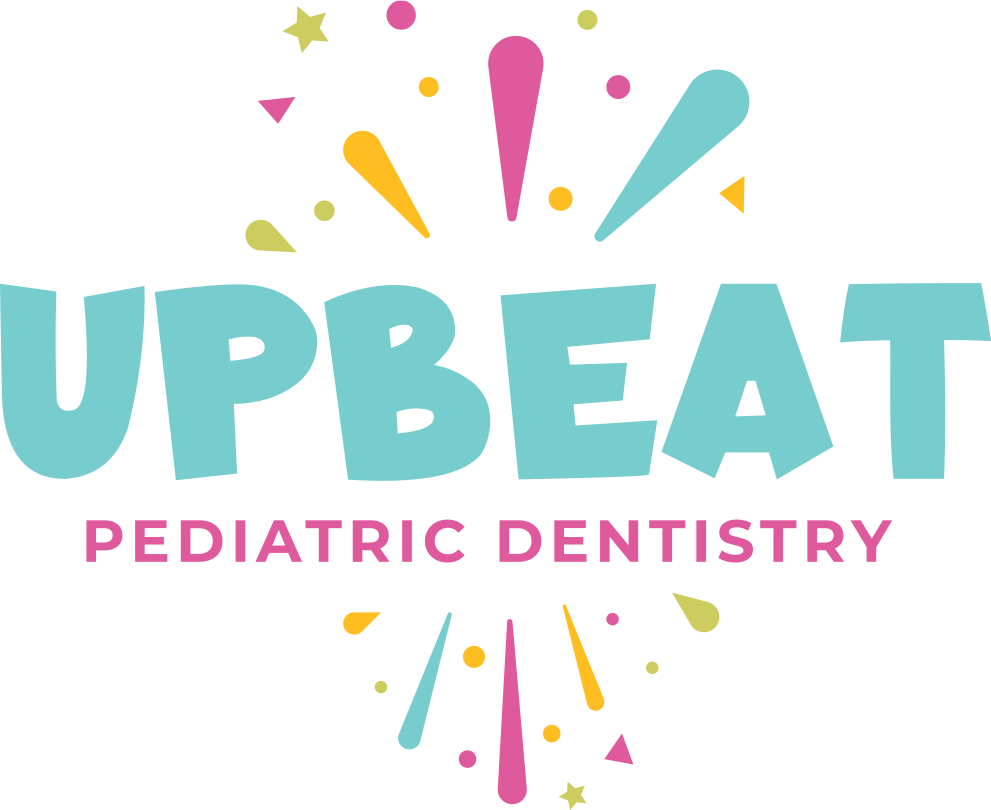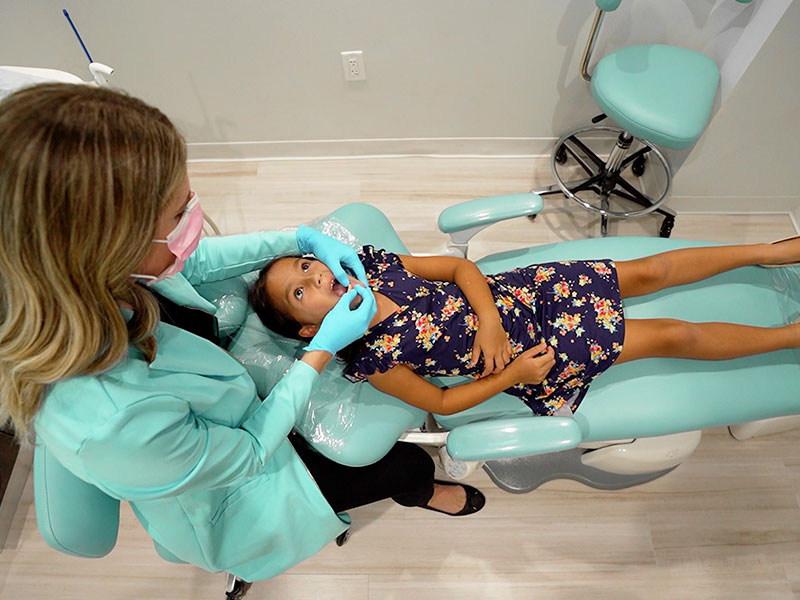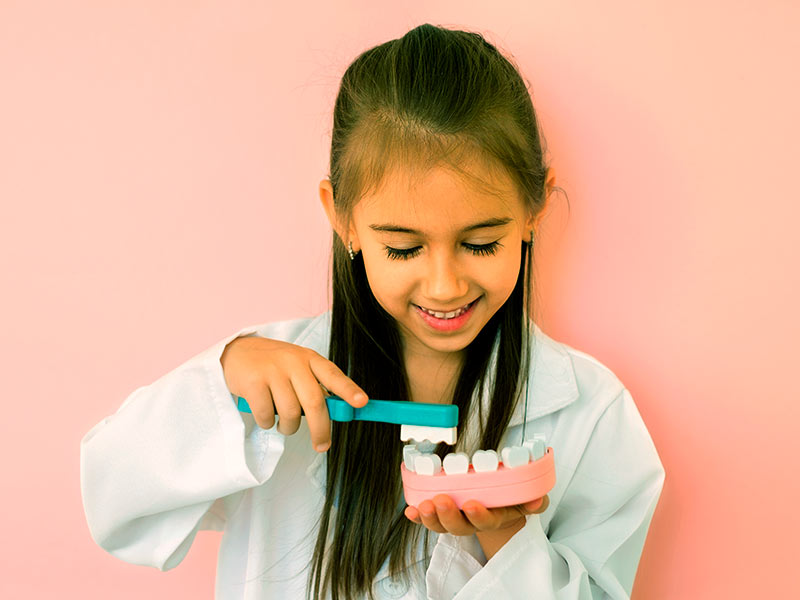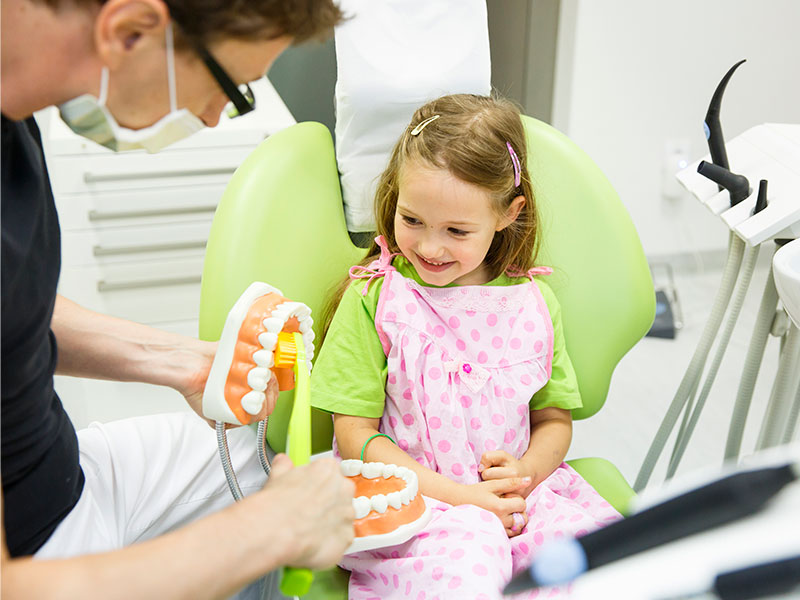As a parent, ensuring your child’s overall health and well-being is a top priority, and this includes their oral health.
From the first tooth to the teen years, children face unique dental challenges that require special attention and care.
At Upbeat Pediatric Dentistry, we specialize in addressing the dental needs of children and are committed to helping parents understand and manage common pediatric dental issues.
In this blog post, we’ll explore some of the most frequent dental problems seen in children and provide tips on how to prevent and treat them.
Tooth Decay (Cavities)
Tooth decay is one of the most common chronic conditions in children. It occurs when bacteria in the mouth produce acids that erode the tooth enamel, leading to cavities.
Causes
Poor Oral Hygiene: Inadequate brushing and flossing can lead to plaque buildup.
Diet: High consumption of sugary foods and drinks.
Bottle-Feeding: Prolonged use of a bottle, especially with sugary liquids, can cause “baby bottle tooth decay.”
Prevention and Treatment
- Brush and Floss: Ensure your child brushes twice a day and flosses daily.
- Healthy Diet: Limit sugary snacks and drinks.
- Regular Dental Visits: Routine check-ups allow for early detection and treatment of cavities.
- Fluoride: Use fluoride toothpaste and consider fluoride treatments to strengthen tooth enamel.
Early Tooth Loss
Losing baby teeth prematurely can happen due to decay, injury, or other reasons and can cause problems with the alignment of permanent teeth.
Causes
Tooth Decay: Severe cavities can lead to tooth extraction.
Trauma: Injuries from falls or sports can result in tooth loss.
Prevention and Treatment
- Mouthguards: Use protective gear during sports to prevent injuries.
- Dental Sealants: Sealants can protect teeth from decay.
- Space Maintainers: If a baby tooth is lost prematurely, a space maintainer can keep the gap open until the permanent tooth erupts.
Thumb Sucking and Pacifier Use
While thumb sucking and pacifier use are normal in infants and toddlers, prolonged habits can affect dental health.
Causes
Comfort: These habits provide comfort and security for young children.
Prevention and Treatment
- Positive Reinforcement: Encourage your child to stop the habit with praise and rewards.
- Orthodontic Evaluation: If the habit persists beyond age 4, consult with a pediatric dentist or orthodontist.
Gum Disease (Gingivitis)
Gingivitis is an inflammation of the gums caused by plaque buildup. If left untreated, it can lead to more severe periodontal disease.
Causes
Poor Oral Hygiene: Inadequate brushing and flossing.
Prevention and Treatment
- Brush and Floss: Ensure thorough daily brushing and flossing.
- Regular Dental Visits: Professional cleanings can help manage and prevent gum disease.
- Healthy Diet: Encourage a diet rich in fruits and vegetables to support gum health.
Dental Anxiety and Phobia
Fear of the dentist is common among children and can lead to avoidance of dental care.
Causes
Past Negative Experiences: Painful or frightening past dental visits.
General Anxiety: General anxiety or fear of the unknown.
Prevention and Treatment
- Early Introduction: Start dental visits early to build a positive relationship.
- Child-Friendly Environment: Choose a pediatric dentist who creates a welcoming and fun atmosphere.
- Positive Reinforcement: Praise and rewards for cooperation during visits.
Malocclusion (Misaligned Teeth)
Malocclusion refers to misalignment of the teeth and bite. This can include overbite, underbite, and crowded teeth.
Causes
Genetics: Family history of orthodontic issues.
Thumb Sucking: Prolonged thumb sucking can affect tooth alignment.
Early Tooth Loss: Losing baby teeth too soon can lead to misalignment of permanent teeth.
Prevention and Treatment
- Early Orthodontic Evaluation: An evaluation by age 7 can identify issues early.
- Braces and Aligners: Orthodontic treatment can correct misaligned teeth and improve oral function.
- Habit Correction: Address habits like thumb sucking early.
Enamel Hypoplasia
Enamel hypoplasia is a defect in the enamel that results in thin or missing enamel on the teeth.
Causes
Genetics: Hereditary factors can play a role.
Prenatal Factors: Issues during pregnancy, such as malnutrition or illness, can affect enamel development.
Childhood Illnesses: Certain illnesses or medications during childhood can impact enamel formation.
Prevention and Treatment
- Fluoride Treatments: Strengthen enamel and protect against decay.
- Dental Sealants: Provide an extra layer of protection for teeth.
- Regular Dental Visits: Early detection and management can prevent complications.
Tooth Grinding (Bruxism)
Bruxism is the habit of grinding or clenching the teeth, often during sleep.
Causes
Stress and Anxiety: Emotional factors can trigger bruxism.
Misaligned Teeth: Malocclusion can contribute to grinding.
Prevention and Treatment
- Mouthguards: A custom-fitted nightguard can protect teeth from grinding damage.
- Stress Management: Techniques to reduce stress and anxiety.
- Orthodontic Treatment: Address underlying bite issues.
Conclusion
Understanding and addressing common pediatric dental issues is essential for maintaining your child’s oral health and overall well-being.
At Upbeat Pediatric Dentistry, we are dedicated to providing comprehensive care tailored to the unique needs of children. Regular dental visits, proper oral hygiene, and early intervention are key to preventing and managing these common dental problems.
If you have any concerns about your child’s dental health or need to schedule an appointment, please contact us today. Together, we can ensure your child enjoys a healthy, beautiful smile for years to come.










